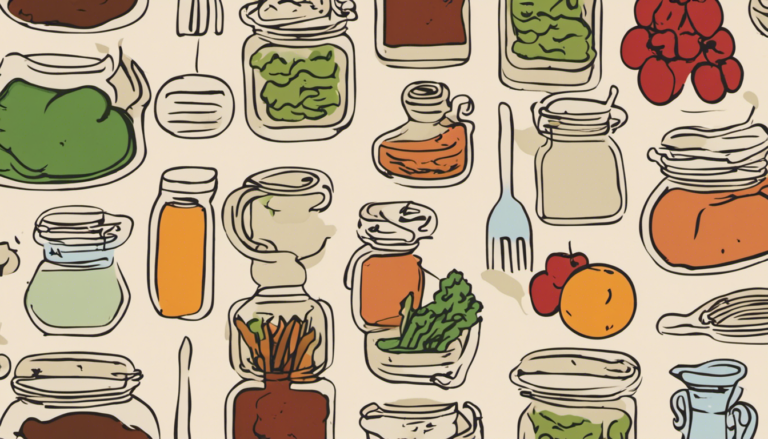How To Reduce Your Sugar Intake
Introduction
Reducing sugar intake is a crucial step towards achieving a healthier lifestyle. The overconsumption of sugar has been linked to numerous health issues, including obesity, diabetes, and heart disease. This article aims to provide a comprehensive understanding of sugar, its impact on our health, and practical strategies to reduce its intake.
Understanding the different types of sugar and how they affect our body is the first step towards making informed dietary choices. By recognizing the hidden sugars in our diet, we can make conscious efforts to reduce our sugar intake.
Reducing sugar intake is not just about cutting back on sweets and desserts. It involves making healthier food choices, adopting balanced eating habits, staying hydrated, and engaging in regular physical activity. Let’s delve deeper into the world of sugar and its impact on our health.
Understanding Sugar
Sugar, scientifically known as sucrose, is a type of carbohydrate that our body uses for energy. It naturally occurs in many foods, including fruits, vegetables, and dairy products. However, it’s the added sugars in processed foods and drinks that pose a significant health risk.
There are different types of sugar, including glucose, fructose, and sucrose. Glucose is the body’s primary energy source, while fructose, found in fruits and honey, has a sweeter taste. Sucrose, commonly known as table sugar, is a combination of glucose and fructose.
Sugar affects the body in various ways. It provides a quick energy boost, which can lead to a sugar rush followed by a crash. Over time, excessive sugar intake can lead to weight gain, insulin resistance, and other health problems.
The Impact of Excessive Sugar Intake
High sugar consumption can have both short-term and long-term effects on our health. In the short term, it can lead to energy spikes and crashes, mood swings, and cravings for more sugar. Over time, these effects can contribute to weight gain and increase the risk of developing chronic diseases.
Long-term effects of high sugar consumption include an increased risk of obesity, type 2 diabetes, heart disease, and certain types of cancer. It can also lead to tooth decay and poor nutrition, as foods high in sugar often lack essential nutrients.
There is a strong link between sugar and obesity. Consuming too much sugar, particularly in the form of sugary drinks, can lead to weight gain. This is because liquid sugars don’t make us feel full, leading to overconsumption.
The Hidden Sugars in Our Diet
Many common foods and drinks are high in sugar. These include not only obvious items like candies and desserts but also foods like bread, sauces, and salad dressings. Even ‘healthy’ foods like yogurt and granola can be loaded with added sugars.
Understanding food labels and sugar content can help us make healthier choices. Look for terms like ‘sucrose’, ‘glucose’, ‘fructose’, ‘maltose’, and ‘corn syrup’ on ingredient lists – these are all forms of sugar.
The concept of ‘added sugars’ refers to sugars that are added to foods during processing or preparation. They are different from natural sugars found in fruits and dairy products. Added sugars contribute to the overall ‘sugar’ count on food labels and should be limited.
Strategies to Reduce Sugar Intake
Gradually reducing sugar in your diet can make the transition easier. Start by cutting back on sugary drinks and snacks, and gradually reduce the amount of sugar you add to your coffee or tea.
Choosing natural sweeteners over processed sugar can also help. Options like honey, maple syrup, and stevia can provide the sweetness you crave without the negative health effects of processed sugar.
Opting for whole foods over processed foods is another effective strategy. Whole foods like fruits, vegetables, and whole grains are naturally low in sugar and high in fiber, which can help control your sugar intake.
Healthy Eating Habits
A balanced diet is key to reducing sugar intake and maintaining overall health. This involves eating a variety of foods from all food groups, including fruits, vegetables, lean proteins, whole grains, and healthy fats.
Incorporating more fruits and vegetables into your diet can help reduce sugar cravings. They are naturally sweet and packed with fiber, which can help you feel full and satisfied.
Proteins and fats play a crucial role in reducing sugar cravings. They slow down digestion, helping you feel full for longer and reducing the urge to reach for a sugary snack.
The Role of Physical Activity
Exercise can help control sugar cravings by reducing stress and helping you distract from cravings. Regular physical activity also helps regulate your blood sugar levels, reducing the need for a sugar boost.
Regular physical activity has numerous benefits, including weight management, improved mood, increased energy levels, and reduced risk of chronic diseases. Whether it’s walking, running, cycling, or yoga, find an activity you enjoy and make it part of your routine.
The Importance of Hydration
Drinking water can help reduce sugar intake by helping you feel full and reducing cravings. It’s also a healthier alternative to sugary drinks like soda and fruit juice.
Sugary drinks are one of the biggest sources of added sugars in our diet. They can lead to weight gain and increase the risk of developing chronic diseases. Opt for water, unsweetened tea, or infused water for a refreshing, sugar-free drink.
Case Studies of Successful Sugar Reduction
Many people have successfully reduced their sugar intake and experienced significant health benefits. These personal stories can provide inspiration and practical tips for those looking to cut back on sugar.
The benefits of reducing sugar intake are numerous. They include weight loss, improved energy levels, better mood, clearer skin, and reduced risk of chronic diseases. By reducing your sugar intake, you can take a big step towards improving your overall health.
Conclusion
Reducing sugar intake is a crucial step towards a healthier lifestyle. It involves understanding the different types of sugar, recognizing the hidden sugars in our diet, and adopting healthier eating habits. By making conscious food choices, staying hydrated, and engaging in regular physical activity, we can significantly reduce our sugar intake and improve our health.
Remember, it’s not about completely eliminating sugar from your diet, but about making healthier choices and finding a balance that works for you. So, take the first step today and start your journey towards a low-sugar lifestyle.
With the right knowledge and strategies, reducing sugar intake is achievable. It’s a journey that requires commitment and patience, but the benefits are well worth the effort. So, why wait? Start your journey towards a healthier, low-sugar lifestyle today.
FAQs
What is sugar?
Sugar, scientifically known as sucrose, is a type of carbohydrate that our body uses for energy. It naturally occurs in many foods, including fruits, vegetables, and dairy products.
What are the effects of excessive sugar intake?
Excessive sugar intake can lead to weight gain, insulin resistance, and other health problems. It can also lead to short-term effects like energy spikes and crashes, mood swings, and cravings for more sugar.
How can I reduce my sugar intake?
You can reduce your sugar intake by gradually cutting back on sugary foods and drinks, choosing natural sweeteners over processed sugar, and opting for whole foods over processed foods. Regular physical activity and staying hydrated can also help.







